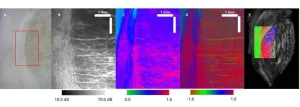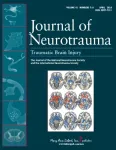(Press-News.org) September 6, 2024 —Researchers at the Terasaki Institute for Biomedical Innovation have been awarded a multi-million grant from the National Institutes of Health (NIH) to advance research in organ transplantation and antibody-mediated rejection. This funding will facilitate the development of an innovative multi-organs-on-a-chip platform aimed at transforming our understanding of transplant rejection and immune tolerance.
Organ transplantation is widely recognized as the most effective treatment for organ failure. However, the need for lifelong immunosuppressive therapy poses substantial challenges, including heightened risks of infections, cancer, heart disease, and kidney damage. Despite progress in the field, current preclinical models fail to accurately reflect human immune responses in transplantation, underscoring the need for more advanced research tools.
Dr. Vadim Jucaud, Ph.D., Assistant Professor and principal investigator of the project, will focus on creating a state-of-the-art multi-organs-on-a-chip platform comprised of a vascularized liver-on-a-chip and heart-on-a-chip, with a fully integrated biosensor system to study the underlying mechanisms of antibody-mediated rejection and liver-mediated cardiac allograft tolerance. This cutting-edge model will simulate the complex physiological functions and microvasculature of liver and heart allografts to explore mechanisms of antibody-mediated rejection and tolerance with unprecedented precision.
“We hope that our proposed model will provide critical insights that can lead to improved treatment strategies and outcomes for transplant patients,” said Dr. Jucaud. “It is great to see the NIH invest in developing next-generation in vitro models for organ transplantation research. This novel multi-organ-on-a-chip platform will allow us to continue the pioneering work of my early career mentor, Dr. Paul I. Terasaki.”
“We are excited about the potential impact of this research”, said Dr. Ali Khademhosseini, Ph.D., Director and CEO of TIBI. “Our unique experience in organs-on-a-chip and immunology enables this project, which will advance our understanding of transplantation to improve patients' lives.”
###
For more information, please visit Terasaki.org or Contact:
Stewart Han
Email: shan@terasaki.org
Vadim Jucaud
Email: vjucaud@terasaki.org
About Terasaki Institute for Biomedical Innovation
The Terasaki Institute for Biomedical Innovation is a non-profit research organization dedicated to leveraging cutting-edge technology to address global health challenges. By fostering interdisciplinary collaborations and pushing the boundaries of innovation, TIBI aims to transform healthcare and improve lives worldwide.
END
Terasaki Institute awarded $2.3 Million grant from NIH for organ transplantation research using organs-on-a-chip technology
2024-09-06
ELSE PRESS RELEASES FROM THIS DATE:
Atoms on the edge
2024-09-06
Typically, electrons are free agents that can move through most metals in any direction. When they encounter an obstacle, the charged particles experience friction and scatter randomly like colliding billiard balls.
But in certain exotic materials, electrons can appear to flow with single-minded purpose. In these materials, electrons may become locked to the material’s edge and flow in one direction, like ants marching single-file along a blanket’s boundary. In this rare “edge state,” electrons can flow without ...
Postdoc takes multipronged approach to muon detection
2024-09-06
NEWPORT NEWS, VA – When Debaditya Biswas was a high school student in India, his math teacher, Dr. Satyabrata Das, sparked his interest in physics.
“Before I joined his class, I was really not sure what I was going to do in life,” said Biswas, a postdoctoral research associate at Virginia Tech. “He revealed the beauty of science to me.”
Now, as the 2024 Jefferson Science Associates (JSA) Postdoctoral Prize winner, Biswas hopes to reveal a new method for the U.S. Department of Energy's Thomas Jefferson National Accelerator Facility to detect muons.
By themselves, muons aren’t actually that difficult for physicists to detect. They are a type ...
Mathematical proof: Five satellites needed for precise navigation
2024-09-06
As a rule, GPS indicates our location with an accuracy of just a few meters. But we have all experienced situations where the possible error increases to a few hundred meters or the indicated location is simply wrong. One reason for this can be the small number of satellites with line-of-sight contact to the navigation device or unfavorable relative alignment of the satellites.
How does GPS work?
GPS satellites are equipped with an extremely accurate atomic clock and know their positions at all times. They continually transmit the time and their location using radio waves. A mobile phone ...
Scalable, multi-functional device lays groundwork for advanced quantum applications
2024-09-06
Researchers have demonstrated a new multi-functional device that could help advance the scalability of solid-state color centers, enabling them to be used in larger and more complex quantum computers and networks. As efficient photon-spin interfaces, solid-state color centers are promising candidates for qubit nodes — essential units for storing and processing quantum information.
Solid-state color centers are point defects that can absorb and emit light at specific wavelengths. To be useful in real-world quantum applications, they must be optically addressable in a fast and controllable manner while also allowing ...
Falling for financial scams? It may signal early Alzheimer’s disease
2024-09-06
Older adults who are more vulnerable to financial scams may have brain changes linked to a higher risk of Alzheimer’s disease, according to a first-of-its-kind study led by researchers at the USC Dornsife College of Letters, Arts and Sciences.
Nearly 7 million Americans are living with Alzheimer’s disease, the fifth leading cause of death among those 65 and older. The disease will carry an estimated $360 billion in health care costs this year alone, according to the Alzheimer’s Association.
Researchers led by Duke Han, professor ...
Integrating MRI and OCT for new insights into brain microstructure
2024-09-06
In a new study, researchers compared the orientations of nerve fibers in a human brainstem using two advanced imaging techniques: diffusion magnetic resonance imaging (dMRI)-based tractography and polarization sensitive optical coherence tomography (PS-OCT). The findings could aid in combining these techniques, which each offer unique advantages, to advance our understanding of the brain’s microstructure and help inform new techniques for early diagnosis of various brain disorders.
Isabella Aguilera-Cuenca from ...
Designing a normative neuroimaging library to support diagnosis of traumatic brain injury
2024-09-06
With recent advances in neuroimaging, moving from qualitative to quantitative outputs, an understanding is needed of what normal data look like to be able to apply these advances to diagnosis and outcomes prediction in traumatic brain injury (TBI). A new article in the peer-reviewed Journal of Neurotrauma introduces the large Normative Neuroimaging Library (NLL) to the research community. Click here to read the article now.
The American College of Radiology and Cohen Veterans Bioscience created a reference ...
Department of Energy announces $68 million in funding for artificial intelligence for scientific research
2024-09-06
WASHINGTON, D.C. - The use of Artificial Intelligence (AI) in scientific research is a top priority at the Department of Energy (DOE), which today announced $68 million in funding for 11 multi-institution projects, comprising 43 awards.
The funded projects will develop new ways to create foundation models, which are machine learning or deep learning models that can be used across a wide range of applications because they’re trained on broad data. Foundation models are a key building block of AI.
Those models will be used in computational science, to automate workflow in laboratories, to accelerate scientific programming, and much more. The possibilities ...
DOE, ORNL announce opportunity to define future of high-performance computing
2024-09-06
The Department of Energy’s (DOE) Office of Science today announced a new research and development opportunity led by Oak Ridge National Laboratory (ORNL) to advance technologies and drive new capabilities for future supercomputers. This industry research program worth $23 million, called New Frontiers, will initiate partnerships with multiple companies to accelerate the R&D of critical technologies with renewed emphasis on energy efficiency for the next generation of post-exascale computing in the 2029 and beyond time frame.
“There is a growing consensus that urgent action is needed to address an array of bottlenecks ...
Molecular simulations, supercomputing lead to energy-saving biomaterials breakthrough
2024-09-06
A team led by scientists at the Department of Energy’s Oak Ridge National Laboratory identified and successfully demonstrated a new method to process a plant-based material called nanocellulose that reduced energy needs by a whopping 21%. The approach was discovered using molecular simulations run on the lab’s supercomputers, followed by pilot testing and analysis.
The method, leveraging a solvent of sodium hydroxide and urea in water, can significantly lower the production cost of nanocellulosic fiber — a strong, lightweight biomaterial ideal as a ...




